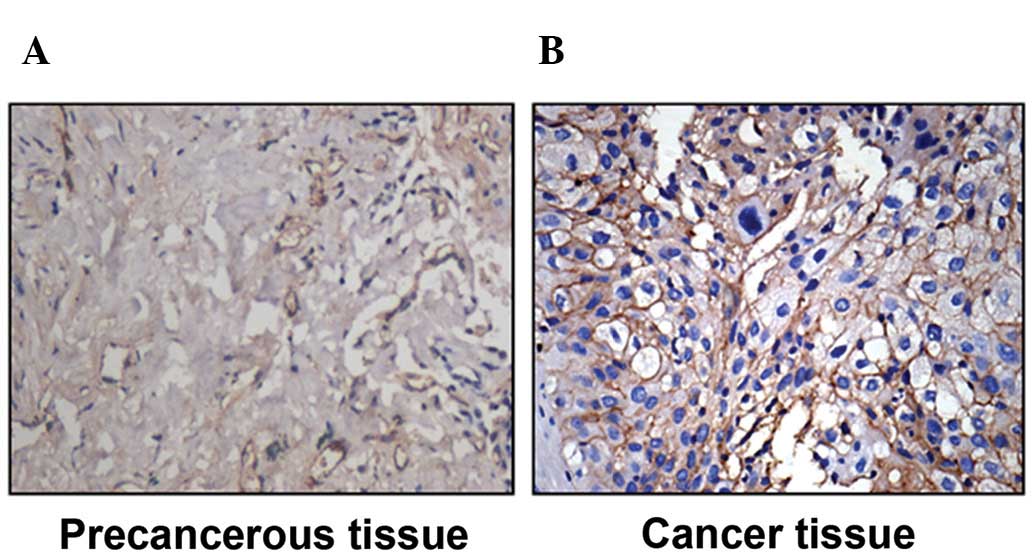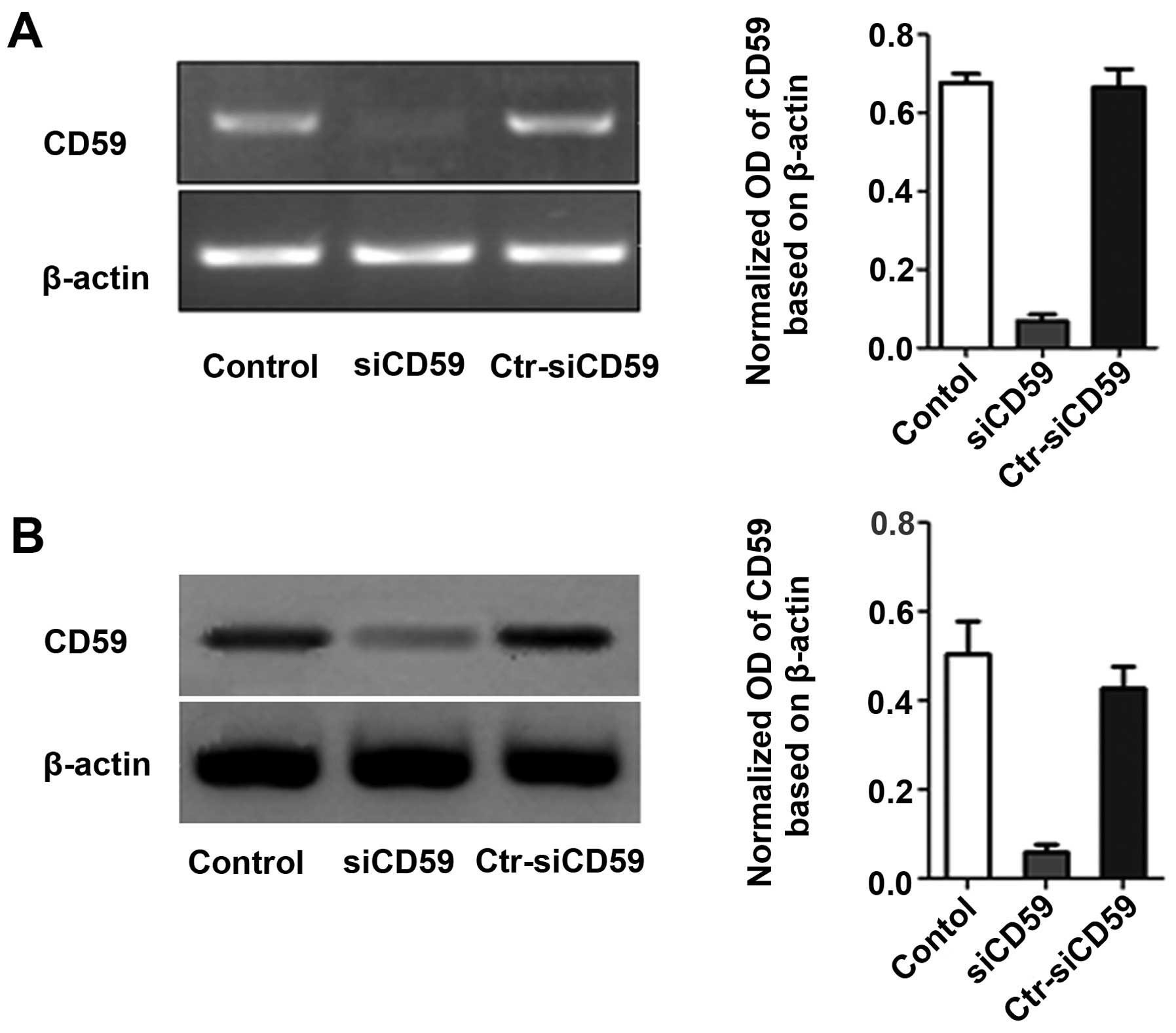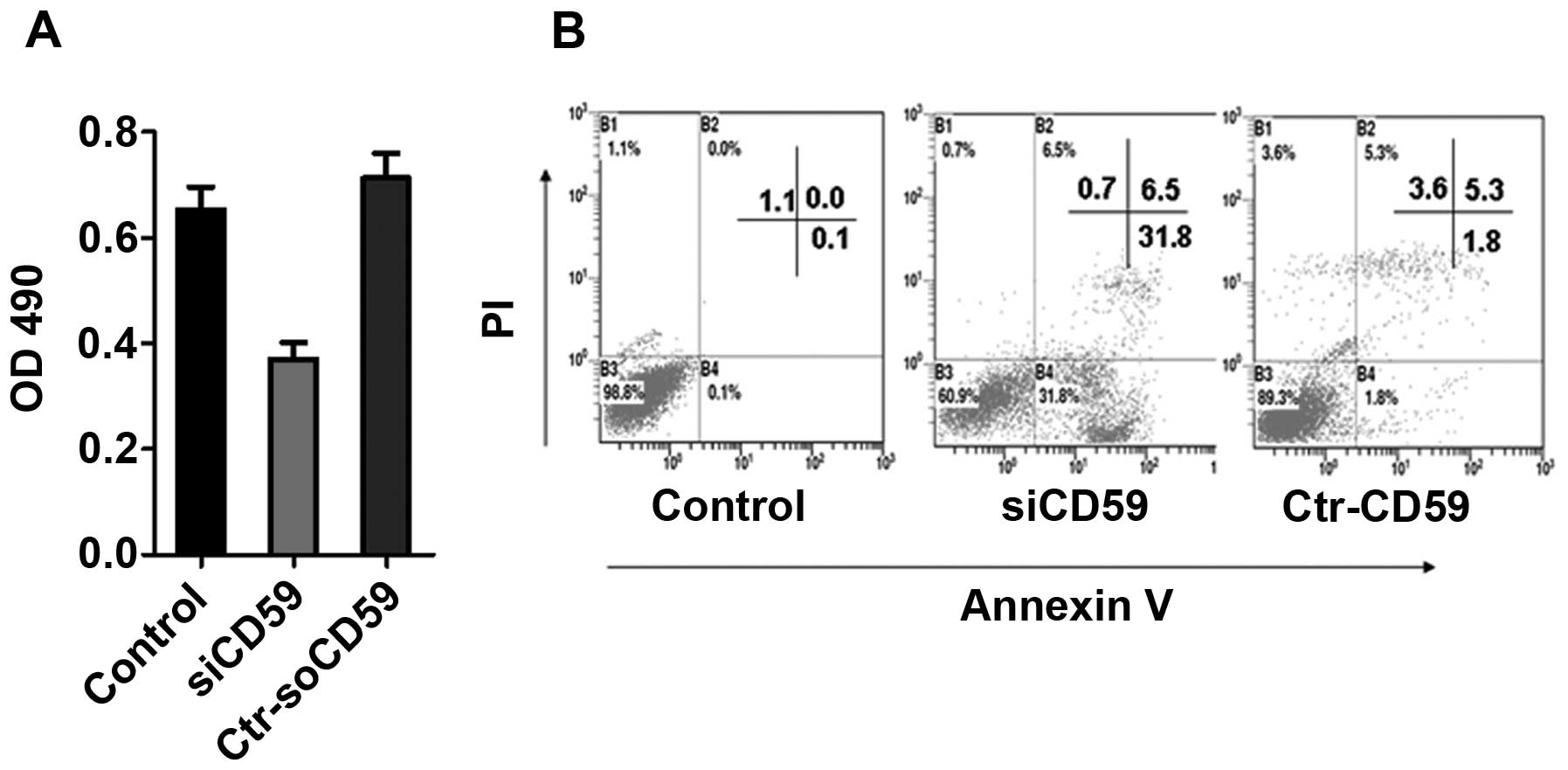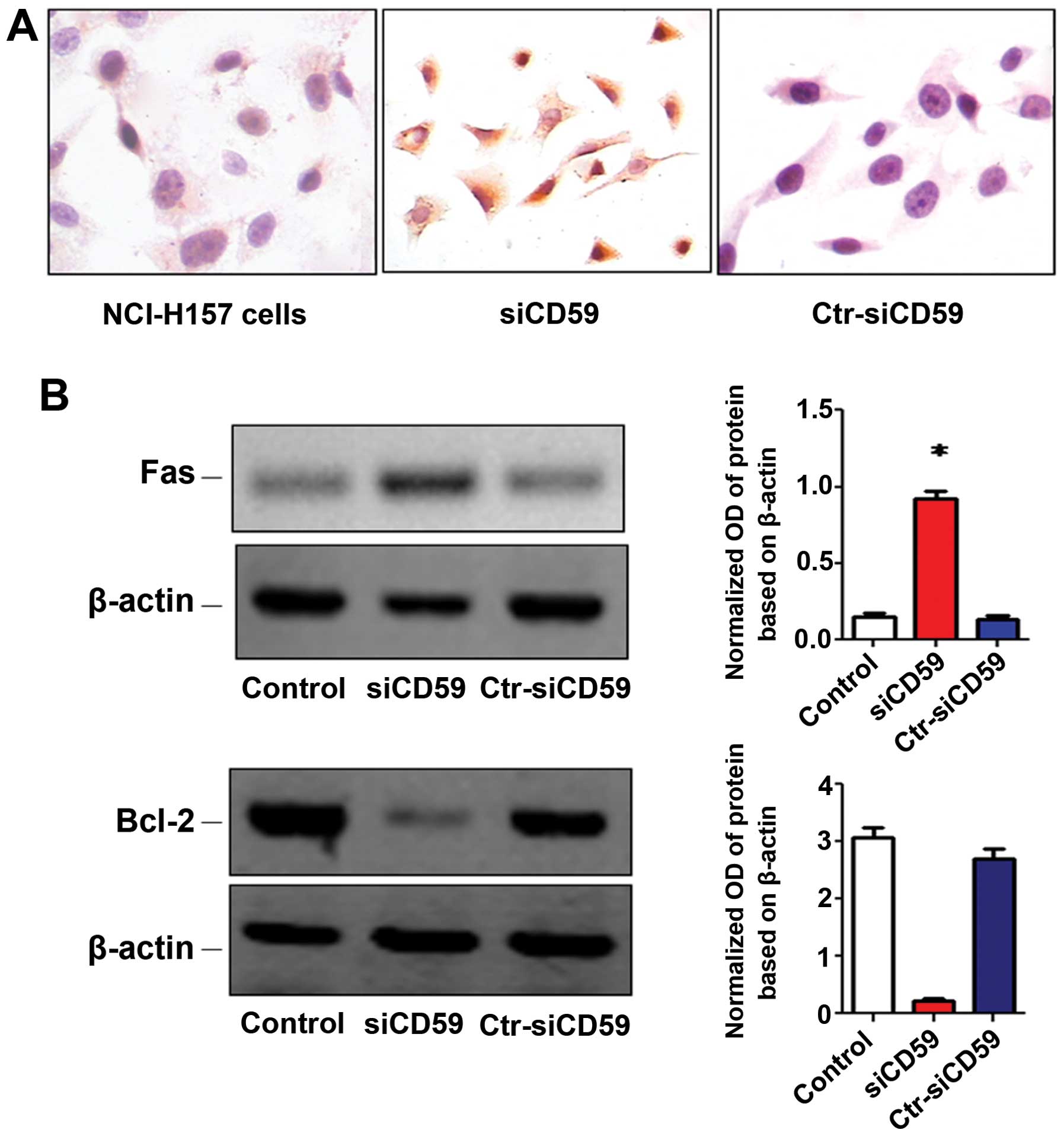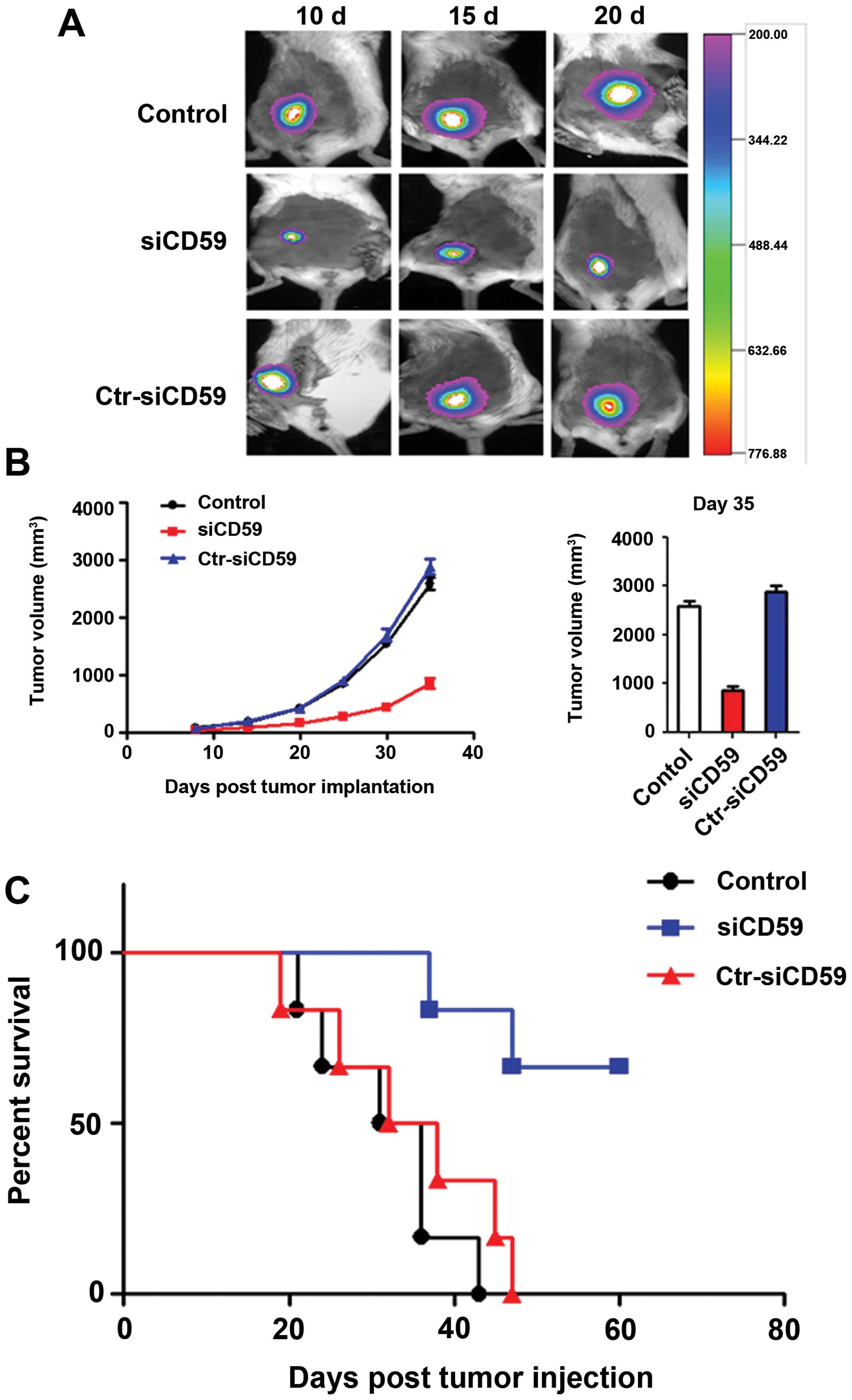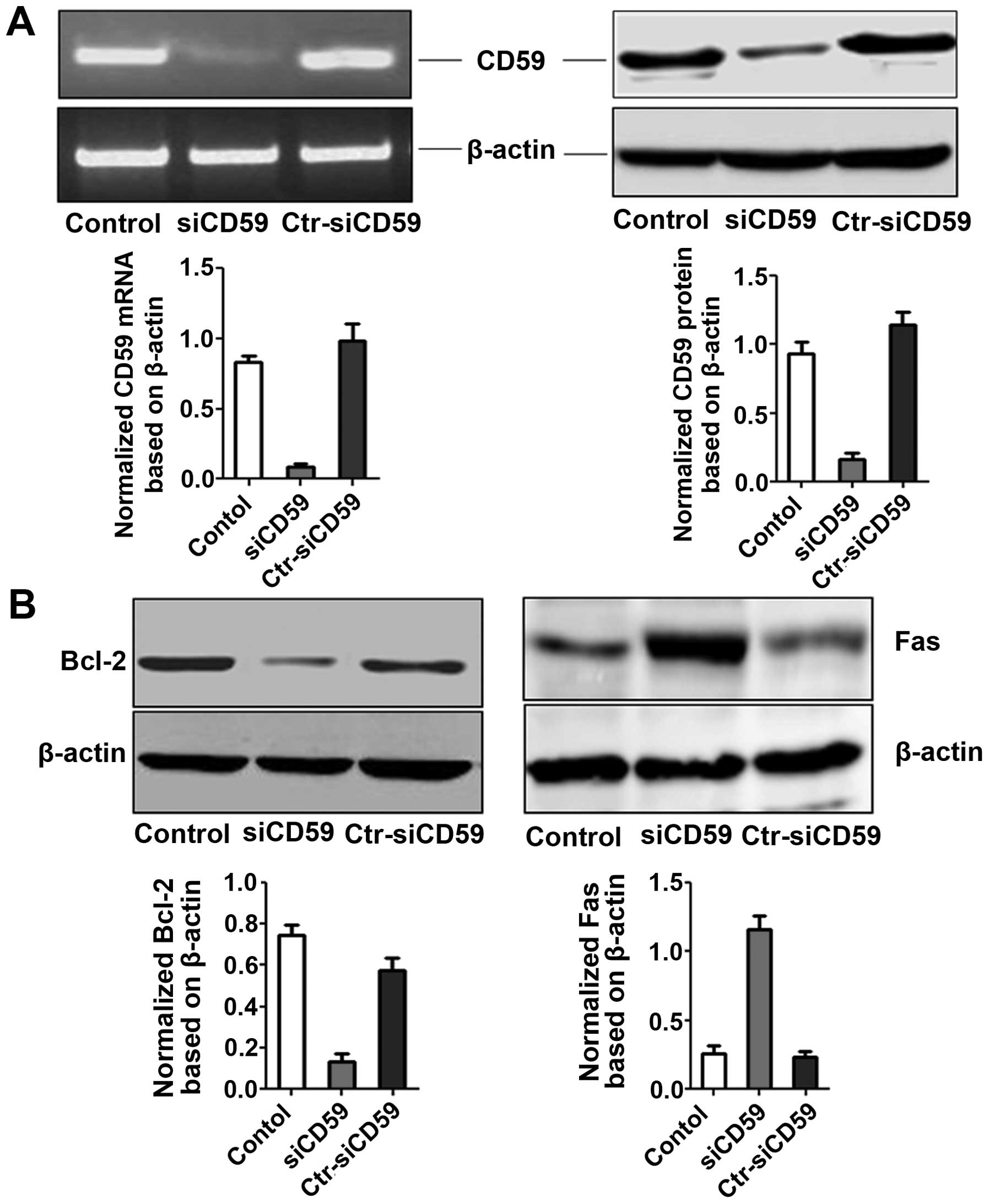|
1
|
Parkin DM, Bray F, Ferlay J and Pisani P:
Global cancer statistics, 2002. CA Cancer J Clin. 55:74–108. 2005.
View Article : Google Scholar
|
|
2
|
Fidias P and Novello S: Strategies for
prolonged therapy in patients with advanced non-small-cell lung
cancer. J Clin Oncol. 28:5116–5123. 2010. View Article : Google Scholar : PubMed/NCBI
|
|
3
|
Fuld AD, Dragnev KH and Rigas JR:
Pemetrexed in advanced non-small-cell lung cancer. Expert Opin
Pharmacother. 11:1387–1402. 2010. View Article : Google Scholar : PubMed/NCBI
|
|
4
|
Whitehurst AW, Bodemann BO, Cardenas J, et
al: Synthetic lethal screen identification of chemosensitizer loci
in cancer cells. Nature. 446:815–819. 2007. View Article : Google Scholar : PubMed/NCBI
|
|
5
|
Li B, Chu X, Gao M and Xu Y: The effects
of CD59 gene as a target gene on breast cancer cells. Cell Immunol.
272:61–70. 2011. View Article : Google Scholar : PubMed/NCBI
|
|
6
|
Shi XX, Zhang B, Zang JL, Wang GY and Gao
MH: CD59 silencing via retrovirus-mediated RNA interference
enhanced complement-mediated cell damage in ovary cancer. Cell Mol
Immunol. 6:61–66. 2009. View Article : Google Scholar : PubMed/NCBI
|
|
7
|
Fonsatti E, Altomonte M, Coral S, et al:
Emerging role of protectin (CD59) in humoral immunotherapy of solid
malignancies. Clin Ter. 151:187–193. 2000.PubMed/NCBI
|
|
8
|
Chen S, Caragine T, Cheung NK and
Tomlinson S: CD59 expressed on a tumor cell surface modulates
decay-accelerating factor expression and enhances tumor growth in a
rat model of human neuroblastoma. Cancer Res. 60:3013–3018.
2000.PubMed/NCBI
|
|
9
|
Wickham SE, Hotze EM, Farrand AJ, et al:
Mapping the intermedilysin-human CD59 receptor interface reveals a
deep correspondence with the binding site on CD59 for complement
binding proteins C8alpha and C9. J Biol Chem. 286:20952–20962.
2011. View Article : Google Scholar : PubMed/NCBI
|
|
10
|
Gelderman KA, Tomlinson S, Ross GD and
Gorter A: Complement function in mAb-mediated cancer immunotherapy.
Trends Immunol. 25:158–164. 2004. View Article : Google Scholar : PubMed/NCBI
|
|
11
|
Fishelson Z, Donin N, Zell S, Schultz S
and Kirschfink M: Obstacles to cancer immunotherapy: expression of
membrane complement regulatory proteins (mCRPs) in tumors. Mol
Immunol. 40:109–123. 2003. View Article : Google Scholar : PubMed/NCBI
|
|
12
|
Fonsatti E, Di Giacomo AM and Maio M:
Optimizing complement-activating antibody-based cancer
immunotherapy: a feasible strategy? J Transl Med. 2:212004.
View Article : Google Scholar : PubMed/NCBI
|
|
13
|
Sioud M: Promises and challenges in
developing RNAi as a research tool and therapy. Methods Mol Biol.
703:173–187. 2011. View Article : Google Scholar : PubMed/NCBI
|
|
14
|
Ashihara E: RNA interference for cancer
therapies. Gan To Kagaku Ryoho. 37:2033–2041. 2010.PubMed/NCBI
|
|
15
|
Ashihara E, Kawata E and Maekawa T: Future
prospect of RNA interference for cancer therapies. Curr Drug
Targets. 11:345–360. 2010. View Article : Google Scholar : PubMed/NCBI
|
|
16
|
Brummelkamp TR, Bernards R and Agami R: A
system for stable expression of short interfering RNAs in mammalian
cells. Science. 296:550–553. 2002. View Article : Google Scholar : PubMed/NCBI
|
|
17
|
Sui G, Soohoo C, Affar el B, Gay F and Shi
Y, Forrester WC and Shi Y: A DNA vector-based RNAi technology to
suppress gene expression in mammalian cells. Proc Natl Acad Sci
USA. 99:5515–5520. 2002. View Article : Google Scholar : PubMed/NCBI
|
|
18
|
Shafer SH and Williams CL: Non-small and
small cell lung carcinoma cell lines exhibit cell type-specific
sensitivity to edelfosine-induced cell death and different cell
line-specific responses to edelfosine treatment. Int J Oncol.
23:389–400. 2003.PubMed/NCBI
|
|
19
|
Geis N, Zell S, Rutz R, et al: Inhibition
of membrane complement inhibitor expression (CD46, CD55, CD59) by
siRNA sensitizes tumor cells to complement attack in vitro. Curr
Cancer Drug Targets. 10:922–931. 2010. View Article : Google Scholar : PubMed/NCBI
|
|
20
|
Fleming TJ, O’HUigin C and Malek TR:
Characterization of two novel Ly-6 genes. Protein sequence and
potential structural similarity to alpha-bungarotoxin and other
neurotoxins. J Immunol. 150:5379–5390. 1993.
|
|
21
|
Sugita Y, Nakano Y, Oda E, Noda K, Tobe T,
Miura NH and Tomita M: Determination of carboxyl-terminal residue
and disulfide bonds of MACIF (CD59), a
glycosyl-phosphatidylinositol-anchored membrane protein. J Biochem.
114:473–477. 1993.
|
|
22
|
Treon SP, Shima Y, Grossbard ML, Preffer
FI, Belch AR, Pilarski LM and Anderson KC: Treatment of multiple
myeloma by antibody mediated immunotherapy and induction of myeloma
selective antigens. Ann Oncol. 11(Suppl 1): 107–111. 2000.
View Article : Google Scholar : PubMed/NCBI
|
|
23
|
Zaltzman AB, Van den Berg CW, Muzykantov
VR and Morgan BP: Enhanced complement susceptibility of
avidin-biotin-treated human erythrocytes is a consequence of
neutralization of the complement regulators CD59 and decay
accelerating factor. Biochem J. 307:651–656. 1995.
|
|
24
|
Hakulinen J and Meri S: Expression and
function of the complement membrane attack complex inhibitor
protectin (CD59) on human breast cancer cells. Lab Invest.
71:820–827. 1994.PubMed/NCBI
|
|
25
|
Madjd Z, Pinder SE, Paish C, Ellis IO,
Carmichael J and Durrant LG: Loss of CD59 expression in breast
tumours correlates with poor survival. J Pathol. 200:633–639. 2003.
View Article : Google Scholar : PubMed/NCBI
|
|
26
|
Thorsteinsson L, O’Dowd GM, Harrington PM
and Johnson PM: The complement regulatory proteins CD46 and CD59,
but not CD55, are highly expressed by glandular epithelium of human
breast and colorectal tumour tissues. APMIS. 106:869–878. 1998.
View Article : Google Scholar
|
|
27
|
Macor P, Mezzanzanica D, Cossetti C,
Alberti P, Figini M, Canevari S and Tedesco F: Complement activated
by chimeric anti-folate receptor antibodies is an efficient
effector system to control ovarian carcinoma. Cancer Res.
66:3876–3883. 2006. View Article : Google Scholar : PubMed/NCBI
|
|
28
|
Koretz K, Brüderlein S, Henne C and Moller
P: Expression of CD59, a complement regulator protein and a second
ligand of the CD2 molecule, and CD46 in normal and neoplastic
colorectal epithelium. Br J Cancer. 68:926–931. 1993. View Article : Google Scholar : PubMed/NCBI
|
|
29
|
Hosch SB, Scheunemann P, Lüth M, et al:
Expression of 17-1A antigen and complement resistance factors CD55
and CD59 on liver metastasis in colorectal cancer. J Gastrointest
Surg. 5:673–679. 2001. View Article : Google Scholar : PubMed/NCBI
|
|
30
|
Bjørge L, Hakulinen J, Wahlström T, Matre
R and Meri S: Complement-regulatory proteins in ovarian
malignancies. Int J Cancer. 70:14–25. 1997.
|
|
31
|
Mäenpää A, Junnikkala S, Hakulinen J,
Timonen T and Meri S: Expression of complement membrane regulators
membrane cofactor protein (CD46), decay accelerating factor (CD55),
and protectin (CD59) in human malignant gliomas. Am J Pathol.
148:1139–1152. 1996.
|
|
32
|
Treon SP, Mitsiades C, Mitsiades N, Young
G, Doss D, Schlossman R and Anderson KC: Tumor cell expression of
CD59 is associated with resistance to CD20 serotherapy in patients
with B-cell malignancies. J Immunother. 24:263–271. 2001.
View Article : Google Scholar
|
|
33
|
Jarvis GA, Li J, Hakulinen J, Brady KA,
Nordling S, Dahiya R and Meri S: Expression and function of the
complement membrane attack complex inhibitor protectin (CD59) in
human prostate cancer. Int J Cancer. 71:1049–1055. 1997. View Article : Google Scholar : PubMed/NCBI
|
|
34
|
Crnogorac-Jurcevic T, Efthimiou E, Nielsen
T, et al: Expression profiling of microdissected pancreatic
adenocarcinomas. Oncogene. 21:4587–4594. 2002. View Article : Google Scholar : PubMed/NCBI
|
|
35
|
Liu CM, Liu DP, Dong WJ and Liang CC:
Retrovirus vector-mediated stable gene silencing in human cell.
Biochem Biophys Res Commun. 313:716–720. 2004. View Article : Google Scholar : PubMed/NCBI
|
|
36
|
Riedemann NC, Guo RF, Laudes IJ, et al:
C5a receptor and thymocyte apoptosis in sepsis. FASEB J.
16:887–888. 2002.PubMed/NCBI
|
|
37
|
Guo RF, Huber-Lang M, Wang X, et al:
Protective effects of anti-C5a in sepsis-induced thymocyte
apoptosis. J Clin Invest. 106:1271–1280. 2000. View Article : Google Scholar : PubMed/NCBI
|
|
38
|
Niculescu T, Weerth S, Soane L, et al:
Effects of membrane attack complex of complement on apoptosis in
experimental autoimmune encephalomyelitis. Ann NY Acad Sci.
1010:530–533. 2003. View Article : Google Scholar : PubMed/NCBI
|
|
39
|
Nauta AJ, Daha MR, Tijsma O, van de Water
B, Tedesco F and Roos A: The membrane attack complex of complement
induces caspase activation and apoptosis. Eur J Immunol.
32:783–792. 2002. View Article : Google Scholar : PubMed/NCBI
|
|
40
|
Hughes J, Nangaku M, Alpers CE, Shankland
SJ, Couser WG and Johnson RJ: C5b-9 membrane attack complex
mediates endothelial cell apoptosis in experimental
glomerulonephritis. Am J Physiol Renal Physiol. 278:F747–F7757.
2000.PubMed/NCBI
|
|
41
|
Korty PE, Brando C and Shevach EM: CD59
functions as a signal-transducing molecule for human T cell
activation. J Immunol. 146:4092–4098. 1991.PubMed/NCBI
|
|
42
|
Möller P, Henne C, Leithäuser F, et al:
Coregulation of the APO-1 antigen with intercellular adhesion
molecule-1 (CD54) in tonsillar B cells and coordinate expression in
follicular center B cells and in follicle center and mediastinal
B-cell lymphomas. Blood. 81:2067–2075. 1993.
|
|
43
|
Grobholz R, Zentgraf H, Köhrmann KU and
Bleyl U: Bax, Bcl-2, fas and Fas-L antigen expression in human
seminoma: correlation with the apoptotic index. APMIS. 110:724–732.
2002. View Article : Google Scholar : PubMed/NCBI
|
|
44
|
Jha P, Sohn JH, Xu Q, Wang Y, Kaplan HJ,
Bora PS and Bora NS: Suppression of complement regulatory proteins
(CRPs) exacerbates experimental autoimmune anterior uveitis (EAAU).
J Immunol. 176:7221–7231. 2006. View Article : Google Scholar : PubMed/NCBI
|
|
45
|
Donev RM, Gray LC, Sivasankar B, Hughes
TR, van den Berg CW and Morgan BP: Modulation of CD59 expression by
restrictive silencer factor-derived peptides in cancer
immunotherapy for neuroblastoma. Cancer Res. 68:5979–5987. 2008.
View Article : Google Scholar : PubMed/NCBI
|















